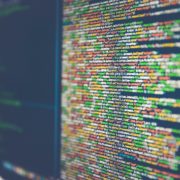5 Industries Being Transformed by IoT and Location Intelligence
Read to learn how the fusion of location data with the Internet of Things (IoT) is making organizations smarter and more efficient across industries
So many devices around us have steadily gotten connected to the Internet that we hardly even notice how extensive the Internet of Things (IoT) ecosystem has become. Our computers and smartphones may be the most obvious IoT players, but today, everything from household items to manufacturing machinery has been embedded with sensors which are generating and streaming data without any kind of human intervention.
Given this pace of proliferation, Gartner says we should expect to see more than 20 billion Internet-connected devices by 2020. And McKinsey maintains that IoT applications could have a global economic impact to the tune of $3.9 trillion to $11.1 trillion per year by 2025. These incredible figures start to sound all too plausible when you look at the developments closer home.
According to IDC Canada, over 45% of Canadian organizations today have dipped their toes in the IoT pool and the IoT market in the Great White North alone is predicted to reach a value of $13.5 billion by 2019. When you consider how IoT is giving businesses access to knowledge they could never tap into before, the optimism for IoT applications gets more than justified.
IoT sensors generate a massive amount of data every day. To both increase revenue and decrease costs, all companies need to do is know how to extract actionable insights from the information at their disposal. Many industries have discovered that the best way to do that is to tie disparate information streams together using an easy-to-recognize context called location.
By using precise location data, organizations can easily visualize what is happening where. And by analyzing historical data bound by spatial awareness, they can map trends and use these insights to optimize business processes.
Let’s dig a little deeper into how various industries are becoming smarter and more efficient by fusing IoT with location intelligence:
Smart Cities
Urban analytics is an essential component of smart city development. IoT and location intelligence are allowing governments and municipal agencies to quickly gather regional insights to identify inefficiencies as well as environmental impacts and risks. For instance, smart sensors on wheels can not only identify most congested areas, they can also provide a telling picture of pollution hotspots. Further, IoT and location intelligence are also creating ladders of opportunities for businesses. For example, the Canadian city of Mississauga publishes its real-time bus locations as a live open data set. A gallery can easily use that information to tell a commuter about an art exhibit they could visit at the next stop.
Supply Chain and Logistics
The marriage of IoT with location intelligence is bringing greater levels of transparency and efficiency in the supply chain, and changing the playing field for organizations that deal with logistics. Embedding tags in cargos is leading to an unprecedented ease in asset tracking and tracing – both during in-freight operations and at the time of inventory management in a warehouse. Distribution centres are also able to manage their yards more effectively by providing up-to-the-minute directions to truckers based on the type of goods they are carrying. And businesses even have an opportunity to provide early intervention in case an asset goes missing or is out-of-place.
Consumer Retail
A study undertaken by Deloitte and the Retail Council of Canada has found that retailers are using smartphone-based traffic analysis to understand the foot traffic outside and inside stores during different times of the day. This data is helping retailers to implement strategies to grow in-store traffic at preferred times. But that’s not the only way how location intelligence and IoT are transforming consumer retail in Canada. Retailers are also using these technologies to execute everything from offering in-store navigation to identifying profitable locations for new stores.
Insurance Companies
According to PWC Canada, 63% of insurance CEOs are convinced that IoT will be strategically important for their organization. And location intelligence is a natural fit for this bundle. Sensor data backed by spatial awareness can give insurance providers first-hand information about what happened, improving their ability to proactively address claims. Insurance companies can also use the location-backed data to improve their risk rating, detect fraud, and improve customer loyalty. For instance, a car insurance provider can offer discounts on premiums to its customers based on their real-time driving data.
Energy and Utilities
Providing reliable, high-quality and uninterrupted service requires a great amount of visibility and control across the entire utility network. IoT and location intelligence make that possible in ways more than one. Peterborough Utilities Group in Ontario, Canada efficiently manages outages and voltage discrepancies in its distribution network by using IoT to capture multiple data points like temperature, board status, etc., every few minutes from its metering points. Meanwhile, BC Hydro, the chief electric utility for British Columbia, has found that it can restore power faster and isolate faults to the smallest possible area leveraging an IoT-based smart grid system.
Clearly, location awareness is indispensable for an effective IoT network. Location intelligence can provide both context and relevance to an organization’s decisions supported by sensor data and open up a wealth of opportunities for smarter growth.
To know more about how you can benefit from adding precise location data to your IoT setup, contact us.

